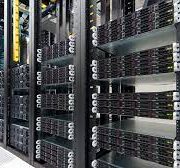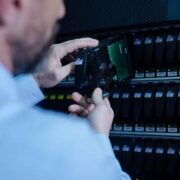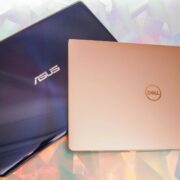In the digital age, data is the lifeblood of any organization, making server security a paramount concern. Servers serve as the backbone of an organization’s IT infrastructure, handling sensitive information, applications, and operations. Any compromise or breach of server security can have severe consequences, including financial loss, damage to reputation, and legal repercussions. Therefore, evaluating and purchasing servers with robust security features is crucial to ensuring data protection and safeguarding your organization against potential cyber threats. In this article, we will explore the essential factors to consider when evaluating and purchasing servers to fortify your data protection efforts.
1. Hardware Security Features
Begin your server security evaluation by assessing the hardware security features. Look for servers equipped with Trusted Platform Modules (TPMs) and Secure Boot capabilities. TPMs provide hardware-based cryptographic functions, securing sensitive data from unauthorized access. Secure Boot ensures that the server only boots using verified and trusted firmware and operating system software, protecting against boot-level attacks.
2. Data Encryption
Data encryption is a fundamental aspect of server security. Ensure that the server supports data encryption at rest and during transit. Modern servers often offer self-encrypting drives (SEDs) that automatically encrypt data written to the disk. Additionally, support for secure communication protocols such as SSL/TLS is essential for protecting data while it’s being transmitted over networks.
3. Access Controls and Authentication
Strong access controls and authentication mechanisms are essential to prevent unauthorized access to the server. Look for servers that support multi-factor authentication (MFA) and role-based access control (RBAC). MFA requires users to provide multiple forms of identification before gaining access to the server, while RBAC ensures that users are granted access only to the resources relevant to their roles, minimizing the risk of data exposure.
4. Firmware and Software Updates
Regular updates of firmware and software are crucial for addressing security vulnerabilities and bugs. Ensure that the server’s manufacturer provides timely updates and patches. Rapid response to security threats is vital to maintaining a secure environment.
5. Physical Security
Physical security measures are essential to protect the server from unauthorized access or tampering. Consider features such as lockable server cabinets or data center cages, surveillance cameras, and access control systems. Proper physical security safeguards the server against theft or unauthorized physical manipulation.
6. Intrusion Detection and Prevention
Intrusion detection and prevention systems (IDPS) play a significant role in identifying and thwarting suspicious activities on the server. Look for servers that support IDPS features or consider deploying dedicated intrusion detection systems to monitor network traffic and detect potential threats.
7. Audit Trails and Logging
Audit trails and logging are critical for monitoring server activities and identifying security incidents. Ensure that the server provides comprehensive logging capabilities, including event logs, access logs, and error logs. Regularly reviewing logs helps detect and respond to potential security issues promptly.
8. Virtualization and Segmentation
If your organization utilizes virtual servers, consider implementing virtualization-based security features. Virtual machine segmentation ensures that each VM operates in isolation, preventing a compromise in one VM from affecting others. Virtualization can enhance overall server security and mitigate potential risks effectively.
9. Vendor Reputation
When purchasing servers, consider the reputation of the server vendor regarding security. Research the vendor’s security practices, past incidents, and commitment to maintaining secure products. Opt for reputable vendors with a track record of prioritizing security.
10. Compliance Considerations
If your organization operates within specific industries with regulatory compliance requirements (e.g., healthcare, finance), ensure that the server meets relevant industry standards and compliance regulations. Compliance is essential for avoiding penalties and maintaining the trust of customers and partners.
Conclusion
Server security is a multifaceted endeavor that demands diligent evaluation and informed decision-making. When evaluating and purchasing servers, prioritize data protection by considering hardware security features, data encryption, access controls, firmware and software updates, physical security, intrusion detection, audit trails, virtualization security, vendor reputation, and compliance considerations. By adopting a proactive and comprehensive approach to server security, you can fortify your organization’s defenses against potential threats and vulnerabilities. Protecting your valuable data and ensuring a secure server environment are vital steps in building a resilient and trusted IT infrastructure for your business’s success.





















Comments